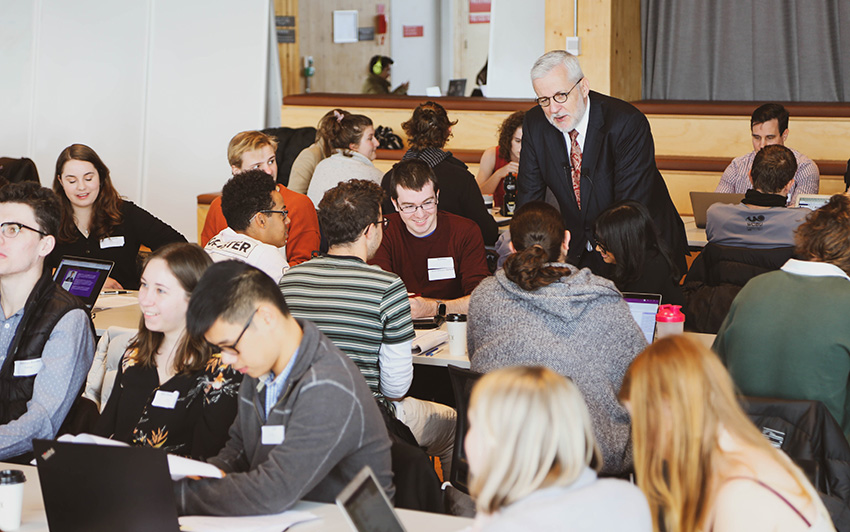“The Language You Speak Influences Where Your Attention Goes“. This finding from psycholinguistics led me to reflect on the language we use to describe teaching. We know that the quality of teaching behaviour has a strong impact on student achievement (Hattie, 2015, Schneider & Preckel, 2017), but do we talk about teaching in ways that direct our attention to aspects of quality that matter?
Drawing on systematic analysis of many meta-analyses, Noben et al. (2020) focus on six key domains of quality teaching:
- safe and stimulating learning climate,
- efficient organisation (classroom management),
- clarity of instruction,
- intensive and activating teaching,
- teaching learning strategies, and
- differentiation.
Through 203 observations of teaching behaviour, Noben et al. found that most lecturers demonstrated teaching behaviour that was deemed sufficient in the first three domains, which they term “foundational teaching skills”, but that almost half did not demonstrate “intensive and activating teaching”, and very few exhibited “differentiation behaviour”. So what do these terms mean? Becoming familiar with them and using them when we talk about teaching could help us pay attention to developing and performing these skills.
“Intensive and activating teaching” describes behaviour that prompts students towards active learning. It includes:
- offers activities and methods that stimulate learners to take an active approach;
- stimulates the building of self-confidence in weaker leaners;
- stimulates learners to think about solutions;
- asks questions which stimulate learners to reflect;
- lets learners think aloud;
- gives interactive instructions; and
- clearly specifies the lesson aims at the start of the lesson.
These behaviours matter because active learning is demonstrated to have a strong impact student performance (e.g., Freeman et al., 2014).
“Differentiation” has only recently been brought to the attention of higher education institutions. It is particularly topical as we seek to welcome and respond to all forms of diversity and recognise that every student is unique. Differentiation:
- evaluates whether the lesson aims have been reached;
- offers weaker learners extra study and instruction time;
- adjusts instructions to relevant inter-learner differences;
- adjusts the processing of subject matter to relevant inter-learner differences.
The research of Noben et al. indicates that intensive and activating teaching and differentiation are advanced teaching skills that can be developed over time, building on the foundational domains of learning climate, organisation and clarity. This reminds us that teaching, like other areas, requires attention so that we can be constantly learning and developing. We need to be constantly engaged in deliberate practice, collecting evidence of the impact of our teaching, working with colleagues to interpret evidence, plan development and improvement paths, and learning from experts.
March 2021
Kim Blackmore is the Director of the ANU Centre for Learning and Teaching (CLT)

